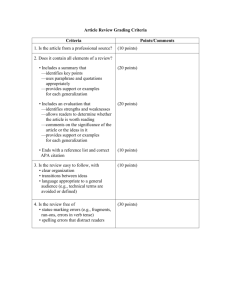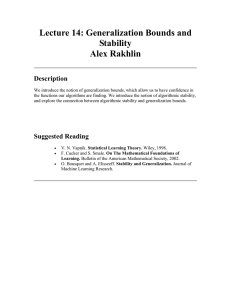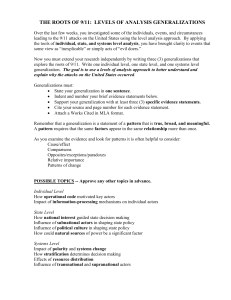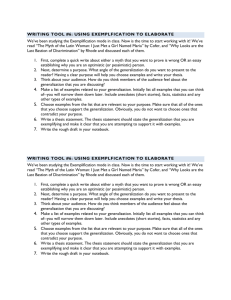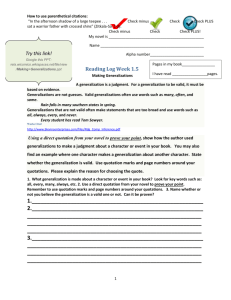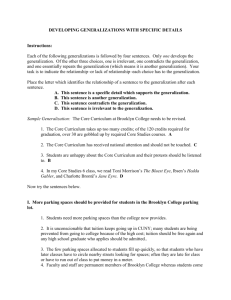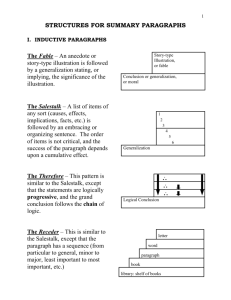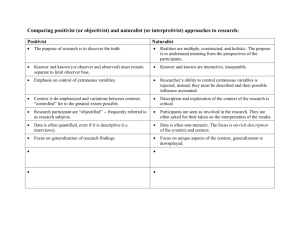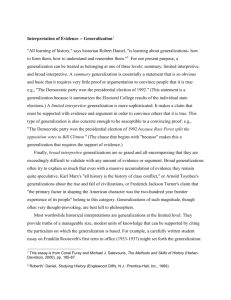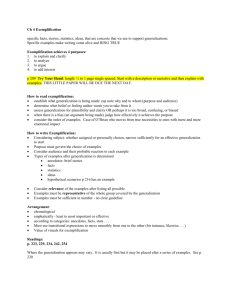Generalizing
advertisement
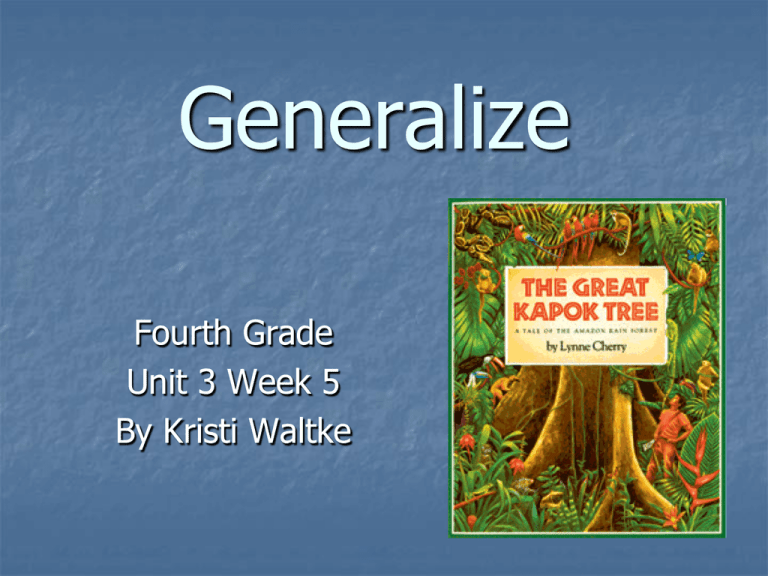
Generalize Fourth Grade Unit 3 Week 5 By Kristi Waltke A generalization is a broad statement or rule that applies to many examples. A clue word such as all, most, always, usually, or generally signals that an author is making a generalization. A generalization can be valid (logical) or faulty (wrong) depending on the number of examples on which it is based and on how logical and careful the thinking is. Read the two generalizations. Decide which generalization is valid. The other statement is faulty. Which generalization is valid? A rain forest is almost always hot and wet. Animals in stories about the rain forest are always scary. Which generalization is valid? The birds of the Amazon rain forest usually prefer the understory. The understory of the Amazon rain forest is generally dark. Which generalization is valid? Usually authors who use animals as characters are only trying to entertain. An author will often use animal characters in a story to teach something important to people. Which generalization is valid? Cutting down one tree never has an effect on an ecosystem. Cutting down one tree effects all the animals that depend on the tree for different reasons.
